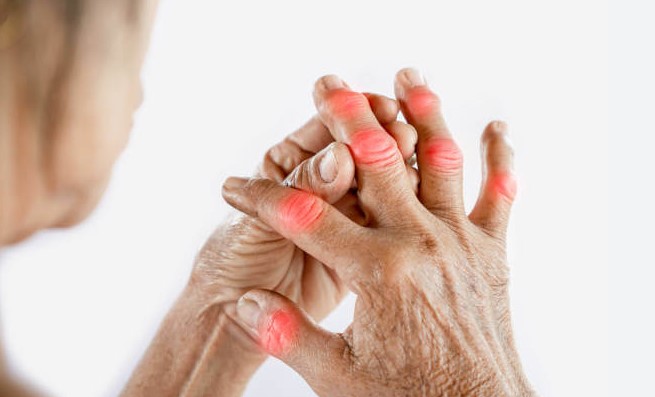Managing Swollen Hands and Fingers: Causes and Solutions

Swollen hands and fingers can be a very uncomfortable and even painful condition. It can be caused by a variety of factors, including injury, infection, and medical conditions. Fortunately, there are a number of solutions available to help manage the swelling and reduce the discomfort. In this article, we will discuss the causes of swollen hands and fingers, as well as the various solutions available to help manage the condition. We will also provide tips on how to prevent swollen hands and fingers in the future.
Understanding the Causes of Swollen Hands and Fingers: What to Look Out For
Swollen hands and fingers can be a symptom of a variety of medical conditions, ranging from minor to serious. It is important to understand the causes of swollen hands and fingers in order to identify any underlying medical issues and seek appropriate treatment.
The most common cause of swollen hands and fingers is inflammation. This can be caused by a variety of factors, including injury, infection, allergies, and autoimmune diseases. In some cases, the swelling may be accompanied by pain, redness, and warmth.
Injury is a common cause of swollen hands and fingers. This can include sprains, strains, fractures, and dislocations. In some cases, the swelling may be accompanied by bruising and tenderness.
Infection is another common cause of swollen hands and fingers. This can include bacterial, viral, and fungal infections. In some cases, the swelling may be accompanied by fever, chills, and fatigue.
Allergies can also cause swollen hands and fingers. This can include reactions to food, medications, and environmental allergens. In some cases, the swelling may be accompanied by itching, hives, and difficulty breathing.
Autoimmune diseases can also cause swollen hands and fingers. This can include rheumatoid arthritis, lupus, and scleroderma. In some cases, the swelling may be accompanied by joint pain, stiffness, and fatigue.
It is important to be aware of the signs and symptoms of swollen hands and fingers in order to identify any underlying medical issues and seek appropriate treatment. If you experience any of the above symptoms, it is important to seek medical attention as soon as possible. Your doctor can help diagnose the cause of the swelling and provide the necessary treatment.
Managing Swollen Hands and Fingers: Natural Remedies and Treatment Options
Swollen hands and fingers can be a painful and uncomfortable condition. Fortunately, there are a variety of natural remedies and treatment options available to help manage the swelling. In this article, we’ll discuss the causes of swollen hands and fingers, as well as some natural remedies and treatment options that can help reduce the swelling and discomfort.
What Causes Swollen Hands and Fingers?
Swollen hands and fingers can be caused by a variety of factors, including injury, infection, arthritis, and even pregnancy. In some cases, the swelling may be caused by an underlying medical condition, such as kidney disease or heart failure. It’s important to speak with your doctor if you’re experiencing persistent swelling in your hands and fingers, as this could be a sign of a more serious condition.
Natural Remedies for Swollen Hands and Fingers
There are a variety of natural remedies that can help reduce the swelling and discomfort associated with swollen hands and fingers. These include:
• Applying a cold compress or ice pack to the affected area. This can help reduce inflammation and swelling.
• Soaking the affected area in warm water. This can help reduce inflammation and improve circulation.
• Massaging the affected area. This can help reduce swelling and improve circulation.
• Taking an over-the-counter anti-inflammatory medication, such as ibuprofen or naproxen.
• Eating a healthy diet that is low in sodium and high in fiber.
• Drinking plenty of water to help flush out toxins.
• Avoiding activities that may aggravate the swelling, such as repetitive motions or heavy lifting.
Treatment Options for Swollen Hands and Fingers
If natural remedies are not enough to reduce the swelling and discomfort associated with swollen hands and fingers, there are a variety of treatment options available. These include:
• Prescription medications, such as corticosteroids or diuretics, to reduce inflammation and swelling.
• Physical therapy to help improve range of motion and reduce pain.
• Surgery to repair any underlying damage or to remove excess fluid.
• Splints or braces to help support the affected area and reduce swelling.
• Injections of corticosteroids or other medications to reduce inflammation.
Conclusion
Swollen hands and fingers can be a painful and uncomfortable condition. Fortunately, there are a variety of natural remedies and treatment options available to help manage the swelling. If natural remedies are not enough to reduce the swelling and discomfort, there are a variety of treatment options available, including prescription medications, physical therapy, surgery, splints or braces, and injections. It’s important to speak with your doctor if you’re experiencing persistent swelling in your hands and fingers, as this could be a sign of a more serious condition.Managing swollen hands and fingers can be a difficult and uncomfortable experience. However, with the right knowledge and understanding of the causes and solutions, it is possible to reduce the swelling and discomfort. By understanding the underlying causes, such as medical conditions, lifestyle factors, and environmental factors, it is possible to identify the best solutions for managing swollen hands and fingers. These solutions may include lifestyle changes, medications, and other treatments. With the right approach, it is possible to reduce the swelling and discomfort associated with swollen hands and fingers.